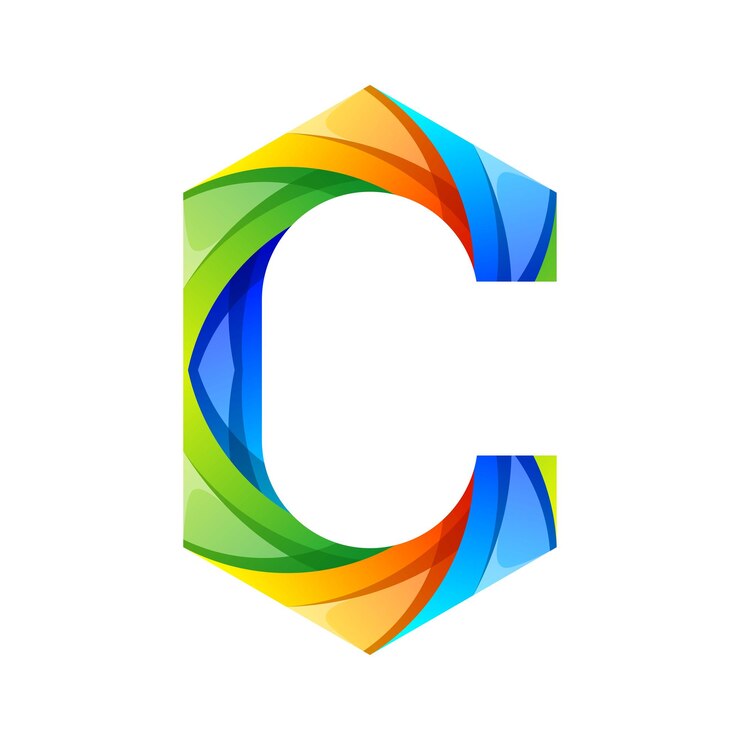Introduction
The interval, often clearly called “C,” has stood to take a look at time as one of the most enduring and powerful programming languages in the world. Advanced in the early 1970s, C has achieved a crucial function in the evolution of software improvement and continues to be a foundational language for programmers. In this text, we can delve into the statistics, abilities, programs, and lasting impact of the c programming language. We will moreover discover why gaining knowledge is relevant in the present-day tech panorama.
The records of C
Origins
C, modified to be created by way of Dennis Ritchie at Bell Labs between 1969 and 1973. It became designed as a tool programming language for the Unix running system, which was modified into moreover being superior at Bell Labs. The introduction of marked a massive milestone as it combined the electricity and versatility of the assembly language with the shape and readability of better diploma languages.
Evolution
Over a long time, C has developed through diverse standards. The maximum amazing versions embody:
- Okay&R C: Named after Brian Kernighan and Dennis Ritchie, who authored “The c language” ebook, this model laid the premise for C’s syntax and semantics.
- ANSI C (C89/C90): Standardized by means way of the Yankee Countrywide Standards Institute, this model introduced many enhancements and has become extensively accompanied.
- C99: delivered in 1999, this model introduced numerous features like inline abilities, variable-duration arrays, and new data kinds.
- C11: published in 2011, C11 brought extra capabilities for multi-threading, advanced Unicode help, and exceptional improvements.
Key talents of C
Simplicity and performance
C is thought for its simplicity, with a small set of key phrases and easy syntax. This simplicity allows programmers to jot down green code, making a truly ideal choice for system programming and applications requiring high performance.
Portability
One of the greatest blessings of the is its portability. Packages written in may be effects tailored to one-of-a-kind hardware and running structures with minimum trade. This selection has made a famous choice for developing strolling systems, compilers, and embedded systems.
Low-degree get right of access to
C offers a low-degree right of access to memory through suggestions, which allows programmers to govern hardware at once. This feature is vital for device-diploma programming and growing overall performance-critical applications.
Wealthy Library assist
The C-preferred Library offers a rich set of incorporated capabilities for input/output operations, string manipulation, mathematical computations, and more. This library assistance makes it less difficult for builders to carry out common duties at the same time as no longer having to write the whole thing from scratch.
Flexibility
C is surprisingly flexible, permitting builders to create complex statistical structures, outline custom data kinds, and use an expansion of programming paradigms, collectively with procedural, modular, and even some components of item-oriented programming.
Applications of C

Operating structures
C has been instrumental in the development of many running structures, maximum extensively Unix and its derivatives, which include Linux. The performance and portability of C make it a top-notch language for writing operating device kernels and related additives.
Embedded systems
Within the realm of embedded structures, is the language of choice because of its ability to engage closely with hardware. From microcontrollers in household domestic systems to complicated vehicle manipulation systems, C is broadly used in software programming for embedded gadgets.
Sport development
At the same time, as higher-degree languages like C++ are more generally related to exercise development, C is vital for performance-important sections of games, together with pix rendering engines and physics simulations.
Medical Computing
C is utilized in scientific computing for developing algorithms and simulations that require high-standard performance and specific control over computational assets. Libraries like LAPACK and BLAS, which might be essential for numerical linear algebra, are carried out in C.
Network Programming
Network packages, which include net servers and network protocols, frequently make use of C due to its performance and capability to cope with low-diploma community operations. The sockets API, for example, is typically used in C to develop network programs.
Mastering C: Why It subjects

Foundation for Distinctive Languages
Getting to know C offers a strong basis for expertise in other programming languages, specifically the ones derived from C, along with C++, C#, and Java. The syntax and thoughts of C are essential to these languages, making it easier for programmers to transition between them.
Information PC structure
C offers insights into how computers work at a low stage. By using learning C, programmers take advantage of better know-how of PC structure, memory management, and the way software programs interact with hardware. This knowledge is valuable for debugging and optimizing code.
Problem-fixing talents
Programming in C enhances problem-solving capabilities by requiring developers to anticipate severely approximately aid control, set of rules overall performance, and system-level interactions. The skills are transferable to one-of-a-kind areas of software development.
Industry name for
However, with the emergence of many present-day programming languages, C remains in immoderate call for in various industries. Information from C can open doorways to careers in tool programming, embedded structures, game development, and more.
Demanding situations of mastering and the usage of C
Steep Studying Curve
Even as the interval offers many advantages, it is not without its demanding situations. One of the maximum amazing barriers for novices is the steep learning curve. Not like modern high-stage languages that summarize many complexities, C calls for deep information about laptop reminiscence and structure. Programmers should manually control the usage of pointers, which may be ineffective and perilous if no longer handled successfully.
Loss of safety functions
C’s power and versatility come at the price of protection capabilities observed in more contemporary languages. For instance, there’s no built-in garbage series. This means that developers have to explicitly allocate and deallocate memory. This guide memory management can lead to commonplace problems like memory leaks and buffer overflows, which may motivate programs to crash or behave unpredictably.
| More: Reddit |
Debugging Complexity

Debugging in C can be especially hard because of its low-degree operations and guide memory management. Mistakes like null pointer dereferences, segmentation faults, and undefined conduct can be difficult to diagnose and fix. Tools like debuggers and memory analyzers are essential for running successfully with C, but in addition, they upload to the complexity of the improvement system.
Portability issues
Although C is known for its portability, reaching proper portability across specific systems can be challenging. Versions in hardware architecture, operating systems, and compiler implementations mean that code may want to be adjusted to run successfully in distinct environments. Developers often want to use conditional compilation and different techniques to make sure their code remains transportable.
Future of C Programming
Persisted Relevance
No matter the rise of recent programming languages, the interval continues to be applicable in many regions of software program improvement. Its overall performance, performance, and control over hardware resources ensure its ongoing use in gadget programming, embedded structures, and other domain names where those characteristics are crucial.
Compilers and Interpreters
Many compilers and interpreters for different programming languages are written in C. The language’s normal performance and occasional diploma talents make it appropriate for building devices that translate and execute code written in exclusive languages.
Conclusion
The C programming language is a testament to the long-lasting strength and flexibility of properly designed software tools. From its origins at Bell Labs to its full-size adoption across various fields, C has been confirmed to be a vital language for programmers. Its simplicity, performance, portability, and occasional-stage competencies make it a critical tool for growing excessive-performance applications.
Whether you are a pro programmer or a newcomer to the arena of coding, learning C offers a wealth of advantages and insights that increase past the language itself. As the era continues to evolve, the foundational principles and abilities received from mastering C will remain relevant and treasured, making sure that the C programming language retains its area as a cornerstone of software development.
FAQ
Q:1. What is the interval?
C is a preferred-purpose, procedural programming language advanced by Dennis Ritchie at Bell Labs between 1969 and 1973. It changed to being designed for system programming, mainly for writing working structures, but for that reason, it has come to be broadly used for the spread of applications, because of its performance and control over system resources.
Q:2. Why is C nevertheless relevant these days?
C remains relevant because of its simplicity, efficiency, and portability. It’s miles broadly utilized in system programming, embedded structures, sports development, and medical computing. Many current languages are encouraged via C or have C-primarily based implementations, ensuring its persisting importance in world programming.
Q:3. What are a few key capabilities of C?
- Simplicity and efficiency: C has a small set of keywords and simple syntax, allowing for efficient code.
- Portability: C packages can be without difficulty adapted to distinct hardware and working systems.
- Low-stage access: C presents direct admission to reminiscence through pointers.
- Wealthy Library support: The C well-known Library offers a wide range of integrated functions.
- Flexibility: C helps with complicated statistical systems, custom fact types, and multiple programming paradigms.
Q:4. What are the main packages of C?
- Operating systems: Used to increase operating structures like Unix and Linux.
- Embedded structures: perfect for programming microcontrollers and other embedded devices.
- Compilers and Interpreters: Many are written in C for its overall performance.
- Game improvement: Used for performance-vital sections along with portrait engines.
- Scientific Computing: used in excessive-performance algorithms and simulations.
- Network Programming: typically used for growing community applications and protocols.
Q:5. What are the demanding situations of studying and using C?
- Steep Studying Curve: requires an understanding of laptop reminiscence and structure.
- Loss of safety capabilities: No built-in garbage collection, main-to-capacity reminiscence leaks, and buffer overflows.
- Debugging Complexity: Low-degree operations make debugging hard.
- Portability problems: Code may additionally need changes to run on distinctive systems.
Q:6. How does C examine different programming languages?
C offers extra control over machine sources and memory management than many higher-stage languages. It is greener and faster but lacks some of the protection functions and abstractions of current languages. Know-how C provides a strong basis for mastering different languages, especially those motivated using C, like C++, C#, and Java.
Q:7. What are the contemporary requirements of C?
- K&R C: The unique version is named after Brian Kernighan and Dennis Ritchie.
- ANSI C (C89/C90): Standardized via the American countrywide requirements Institute.
- C99: brought capabilities like inline features and variable-length arrays.
- C11: added multi-threading assist, advanced Unicode assist, and extra.
- C2x: the imminent fashionable goals to incorporate present-day functions and upgrades.
Q:8. How can I begin mastering C?
- Books: “The c program language” by way of Brian Kernighan and Dennis Ritchie is a conventional start line.
- Online publications: Many online systems provide C programming courses.
- Exercise: Writing small programs and fixing problems in coding systems can help reinforce gaining knowledge.
- Network: becoming a member of boards and groups devoted to C programming can offer help and resources.
Q:9. Why need I to learn C if there are greater contemporary languages to be had?
Learning C offers you a deeper know-how of the way computer systems paint at a low degree. It enhances your hassle-fixing abilities and prepares you for running with device-stage programming. The concepts and capabilities learned from C are transferable to many different languages and regions of software program improvement.
Q:10. Am I able to use C for web improvement?
At the same time, as C is not commonly used for web improvement, it could be used to build performance-critical backend services and web servers. However, better-degree languages like Python, JavaScript, and personal home page are generally used for web development due to their ease of use and huge frameworks.
Q:11. What tools do I want to start programming in C?
- Compiler: A C compiler like GCC (GNU Compiler series) or Clang.
- IDE/text Editor: incorporated Development Environments (IDEs) like Code::Blocks or visible Studio, or textual content editors like Vim or sublime text.
- Debugger: tools like GDB (GNU Debugger) to help with debugging your programs.
- Build equipment: equipment like make to manage construction procedures for larger tasks.





